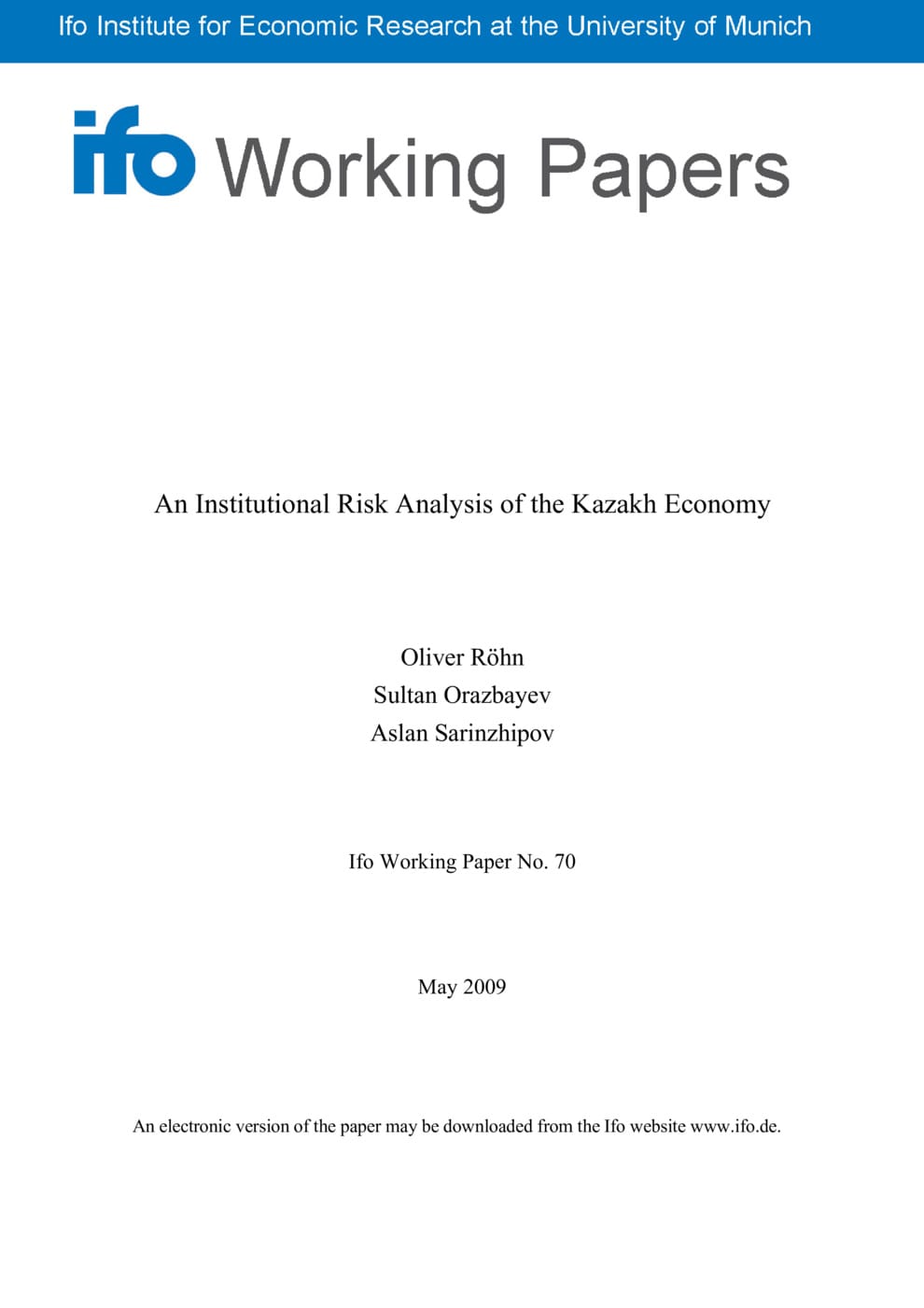An Institutional Risk Analysis of the Kazakh Economy
ifo Institut für Wirtschaftsforschung, München, 2009
Ifo Working Paper No. 70

This paper investigates the impact of institutions or structural policies on the volatility of income or GDP per capita in transition countries and in Kazakhstan in particular. In the first part of the paper we compare Kazakhstan’s institutional framework with other transition economies based on a broad range of indicators. Using factor analytical tools to reduce the dimensionality of the indicator space we find that in general Kazakhstan’s institutional quality ranks among the lowest of the 24 transition countries investigated. Reform progress was mainly achieved in infrastructure. In the second part of the paper we employ state-of-the-art Bayesian Model Averaging (BMA) to identify institutional and macroeconomic policy areas that have the strongest impact on output volatility in transition economies. The analysis shows that good legal and administrative institutions can help smooth output volatility. Moreover, we also find that inflation and current account volatility and to a smaller extend exchange rate fluctuations are important determinants of output volatility.